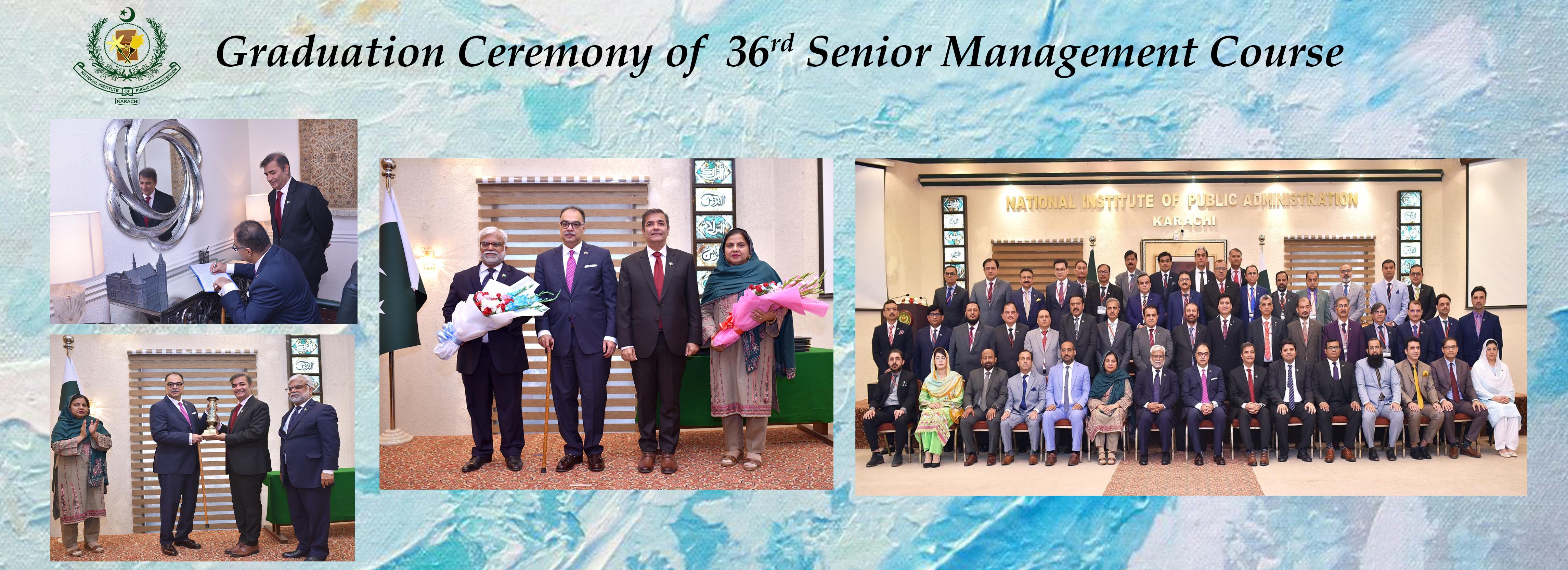The National School of Public Policy was promulgated through an ordinance on October 26, 2002, envisioning restructuring of the public sector training institutions, in line with the modern day demands of management and governance. With its headquarters at Lahore, the NSPP has as its affiliated units, six premier training institutions which were previously operating independently under the Establishment Division, namely the Pakistan Administrative Staff College, the Civil Services Academy Lahore and the four campuses of the National Institute of Public Administration, renamed as National institute of Management.
The Board of Governors(BOGs) for general direction and administration of the affairs of NSPP:
|
a |
The President of Pakistan |
Chairman |
|
b |
A Federal Minister to be nominated by the Chief Executive of the Islamic Republic of Pakistan |
Vice-Chairman |
|
c |
The Rector |
Member |
|
d |
Secretaries Establishment and Finance Division |
Member |
|
e |
Two eminent stake-holders in public policy from private sector to be nominated by the Federal Government |
Member |
|
f |
Two Distinguished academicians including one woman to be nominated by Federal Government |
Member |
Functions of NSPP:
- To provide for instruction, tuition, training, research, demonstration and service in such branches and disciplines of public administration, public policy, law, economics, finance management sciences and any other relevant discipline as the Board may, from time to time, determine..
- To introduce, suspend or abolish any of the disciplines or to establish and support other facilities for education, training and research.
- To formulate and prescribe courses of study and training.
- To determine teaching methods and strategies as well as co-curricular activities in order to ensure the most effective educational and other related programs.
- To design and organize courses, workshops and such other activities in the relevant fields.
- To provide pre-service and in-service training.
- To undertake research, consultancy and advisory services.
- To prescribe criteria and conditions of admission and examination of students.
- To develop standards, conduct examinations and to award degrees, diplomas, certificates and other academic distinctions to persons who have undergone various courses and have passed the examinations under prescribed conditions.
- To serve as research institute for the Federal Government on mattes of public policy and to advise the Federal Government on such policy matters as are referred to it.


.jpg)
.jpg)

.jpg)
.jpg)
.jpg)
.jpg)
.jpg)
.jpg)
.jpg)

.jpg)
.jpg)
.jpg)
.jpg)

.jpg)

.jpg)
.jpg)
.jpg)


.jpg)




.jpg)

.jpeg)



.jpeg)










